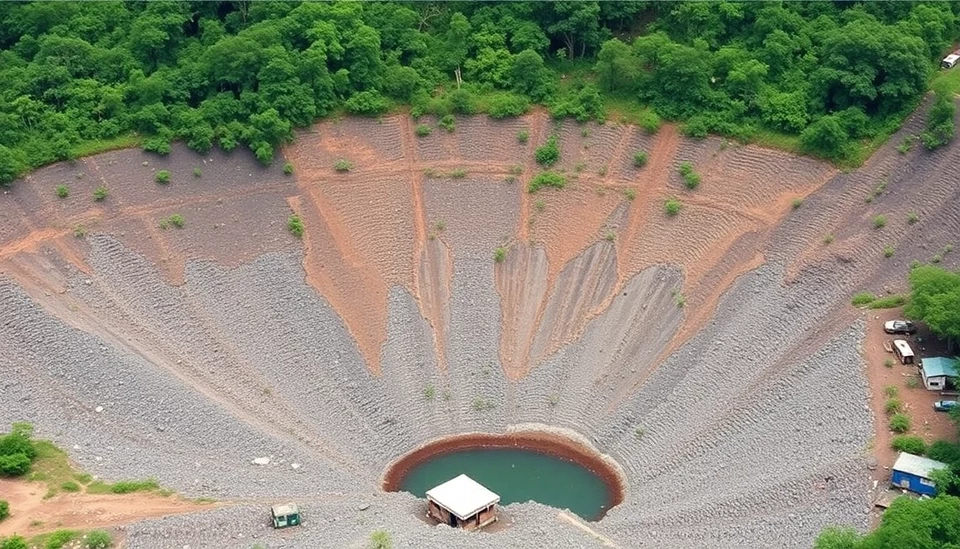
The abandoned Panguna copper mine in Papua New Guinea, once a beacon of industrial achievement, now stands as a testament to the dangers of neglect and mismanagement of natural resources. A recent report has unveiled the alarming reality that this site poses significant environmental and health risks to the surrounding communities.
Once hailed as one of the world’s largest copper mines, Panguna was operational until the mid-1990s when it was closed following a violent conflict between landowners and the mining company, Bougainville Copper Limited. Since then, the site has been left largely unmonitored, leading to a deterioration of conditions that could endanger local populations and their ecosystems.
The report highlights various concerns, including the leaching of toxic substances into nearby water sources. Arsenic, copper, and other hazardous materials found in the mine's waste pose severe threats to both human health and local wildlife. Communities near the mine are reported to experience high rates of illnesses, which experts attribute to pollution stemming from the abandoned mine.
Local residents and environmental advocates have called for urgent remediation efforts, underscoring the need for a collaborative approach involving the government, the mining company, and international watchdogs. They argue that addressing these contamination issues is not only vital for public health but is also crucial in restoring faith in mining operations in the region.
Despite the documented hazards, there is currently no active plan in place to remediate the site. Many fear that without intervention, the Panguna mine will continue to pose a threat for generations to come. The report serves as a clarion call for immediate action to mitigate the impacts of this dilapidated mining operation.
As stakeholders gather to discuss the future of mining in Papua New Guinea, the fate of the Panguna mine will undoubtedly be a focal point. The discussions are expected to weigh the potential benefits of mining against the necessity of ensuring environmental stewardship and the health of local communities.
The urgency of the situation cannot be overstated, as the legacy of the Panguna copper mine continues to unfold, casting long shadows on the landscape and on the lives of those who call the area home.
In conclusion, the fate of the abandoned Panguna copper mine serves as a crucial reminder of the importance of responsible mining practices and the need for thorough oversight to prevent similar tragedies in the future.
#PangunaMine #CopperMine #EnvironmentalHazard #PapuaNewGuinea #MiningSafety #PublicHealth
Author: Peter Collins




